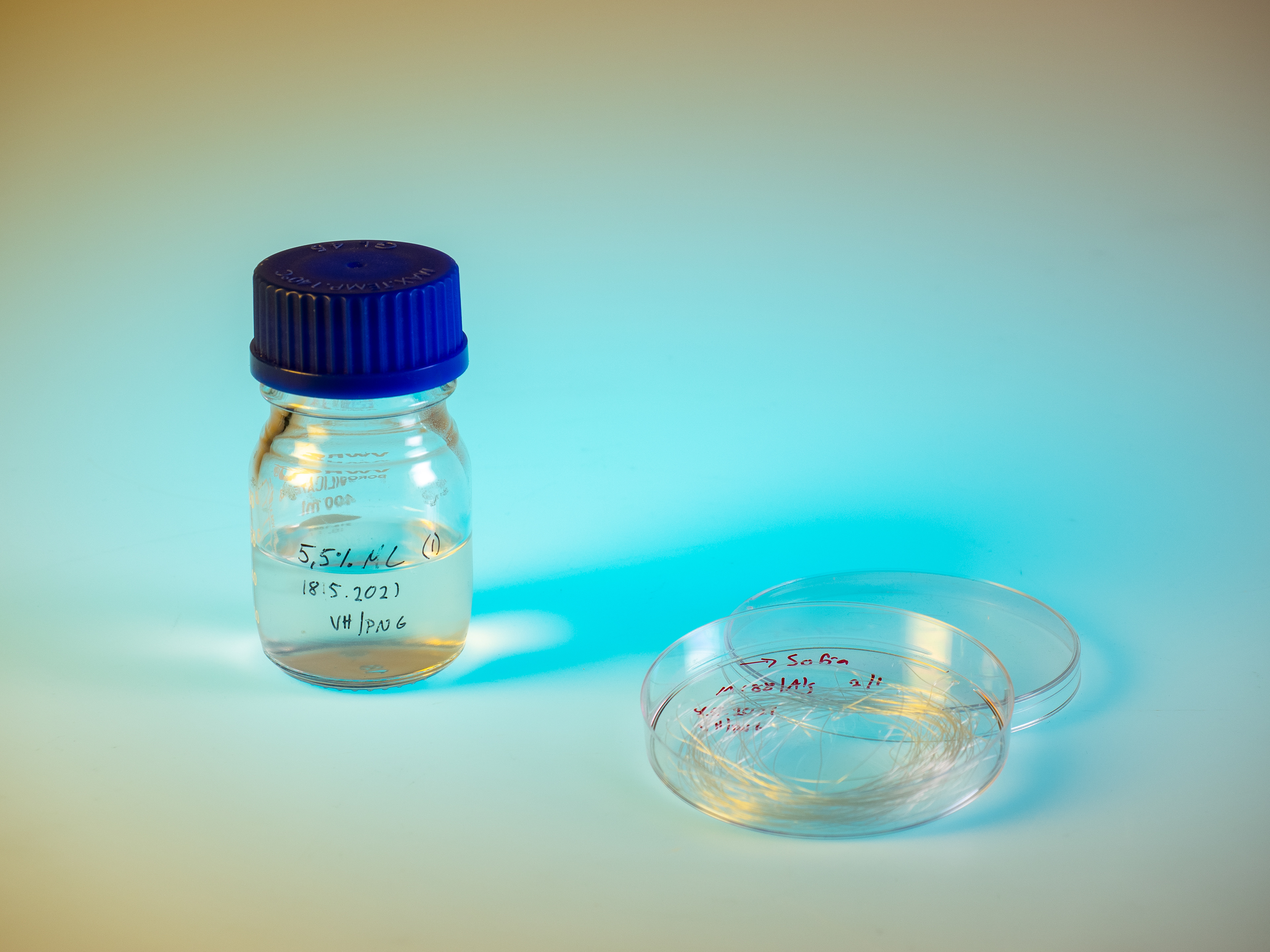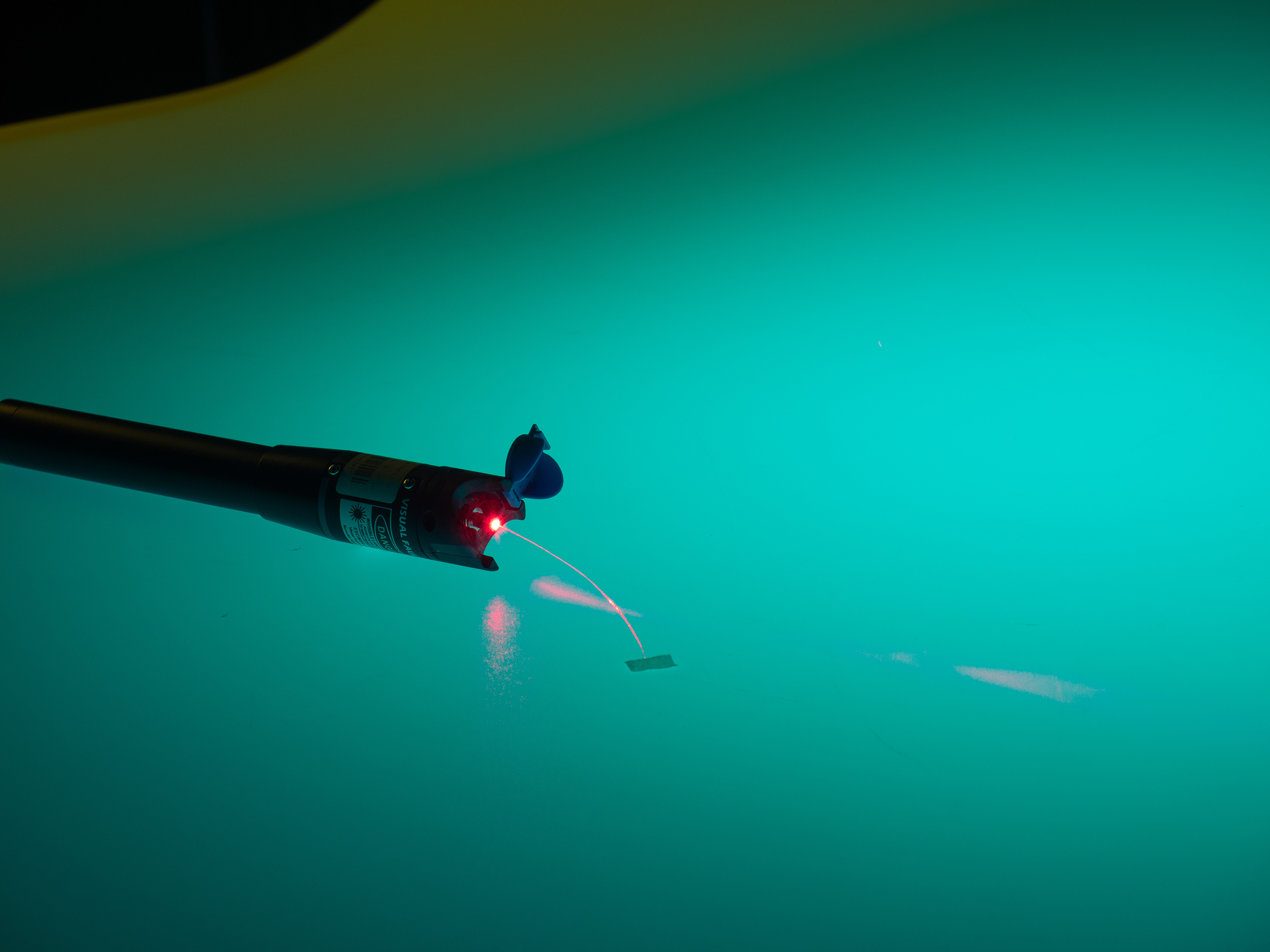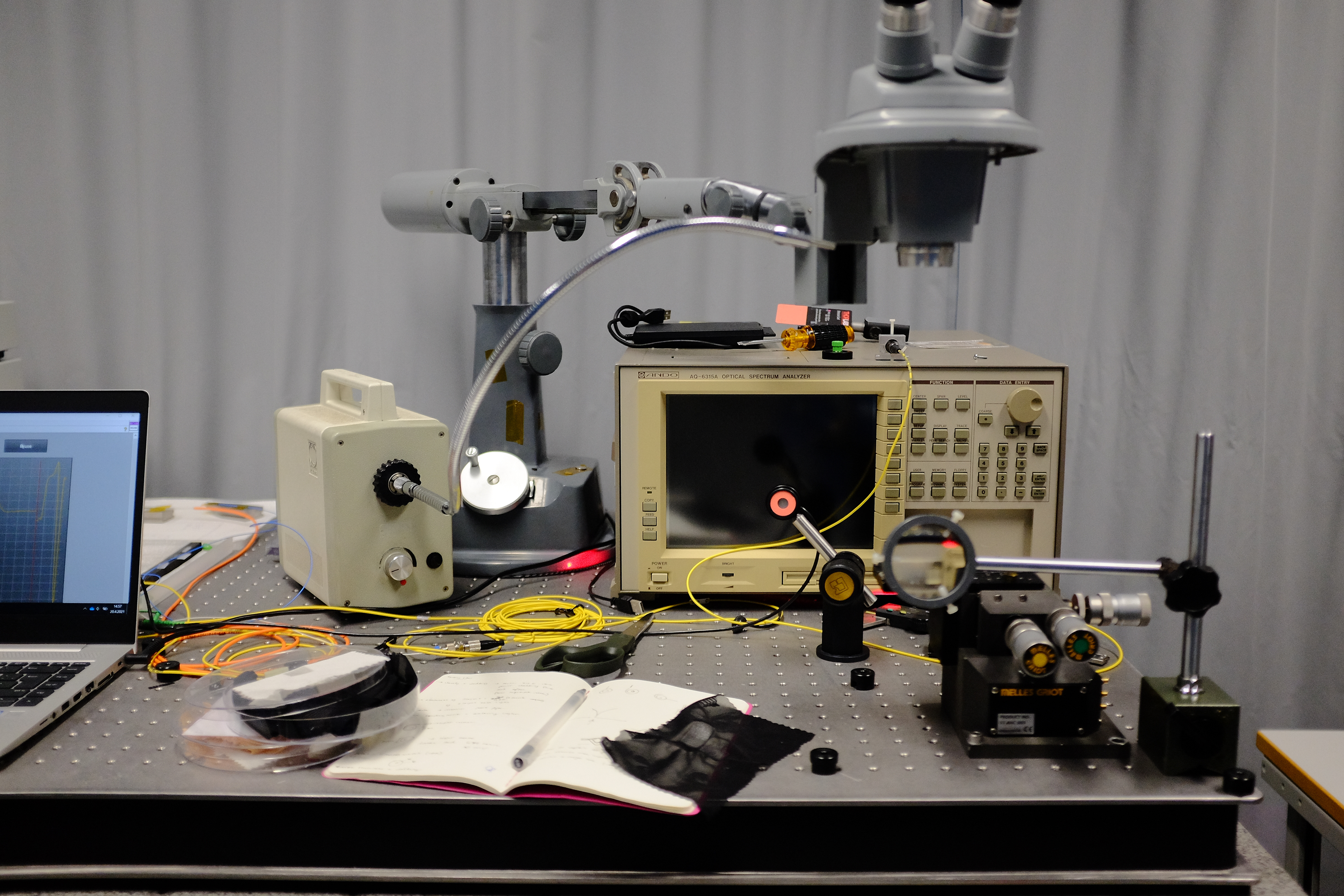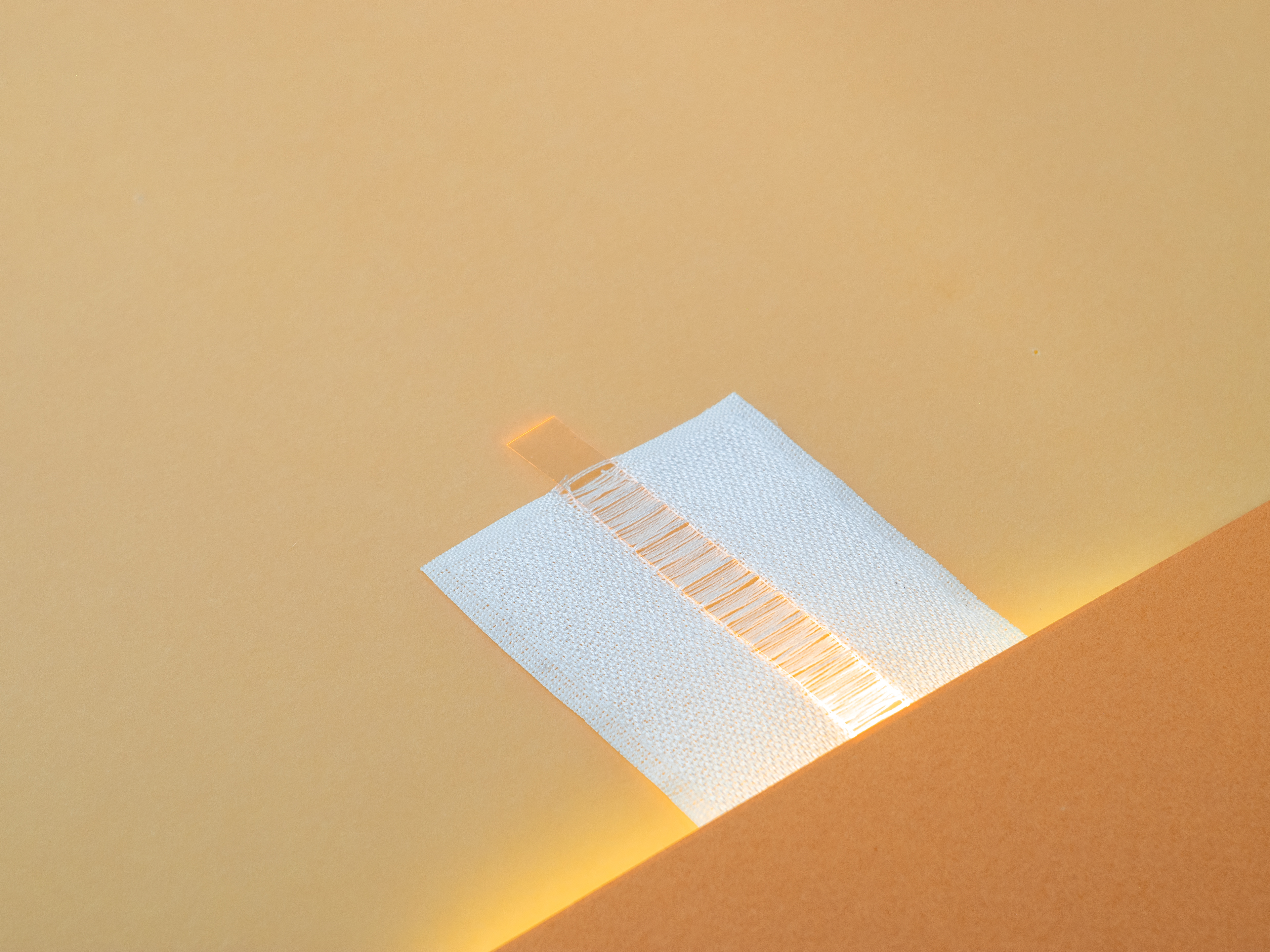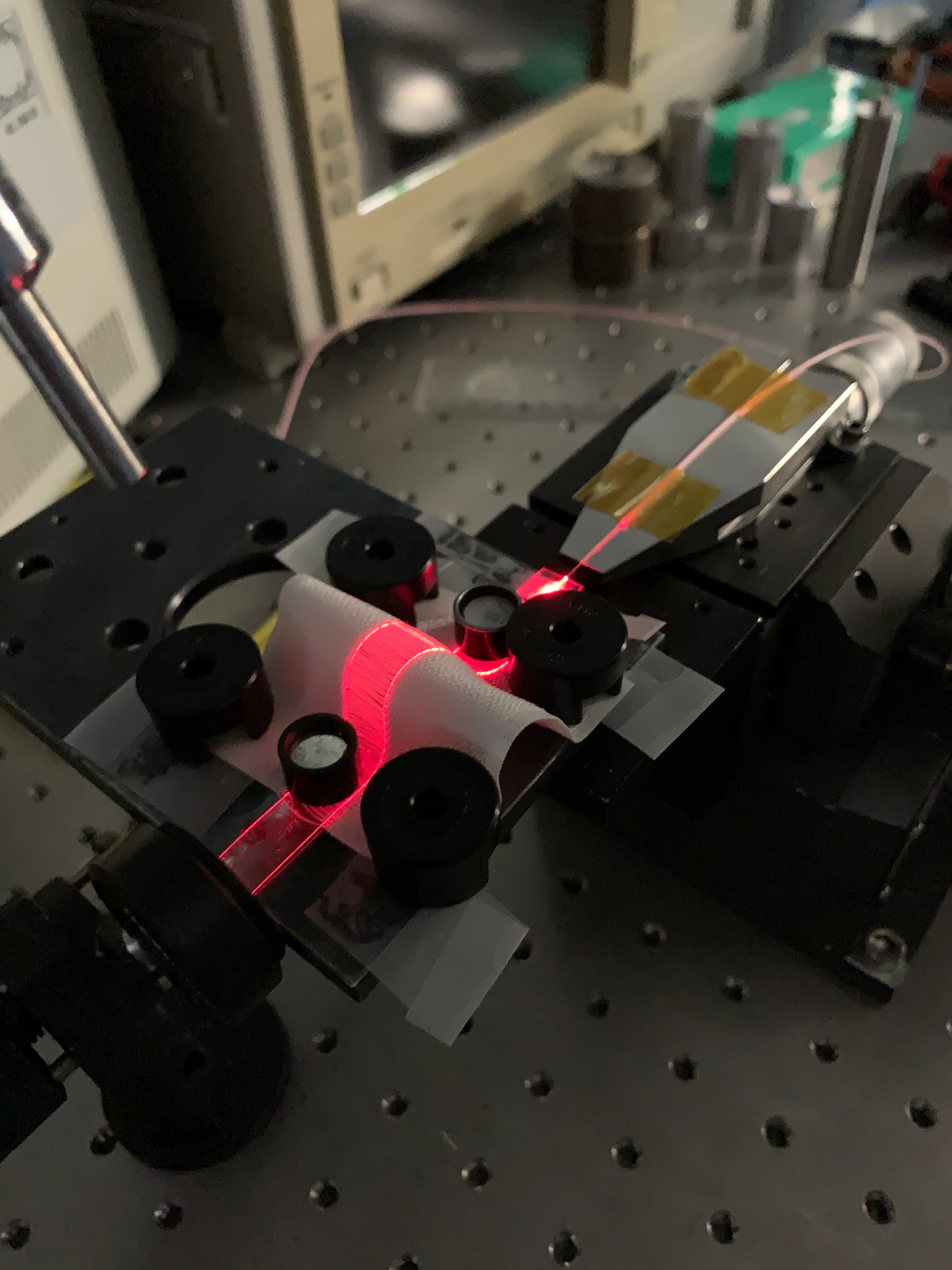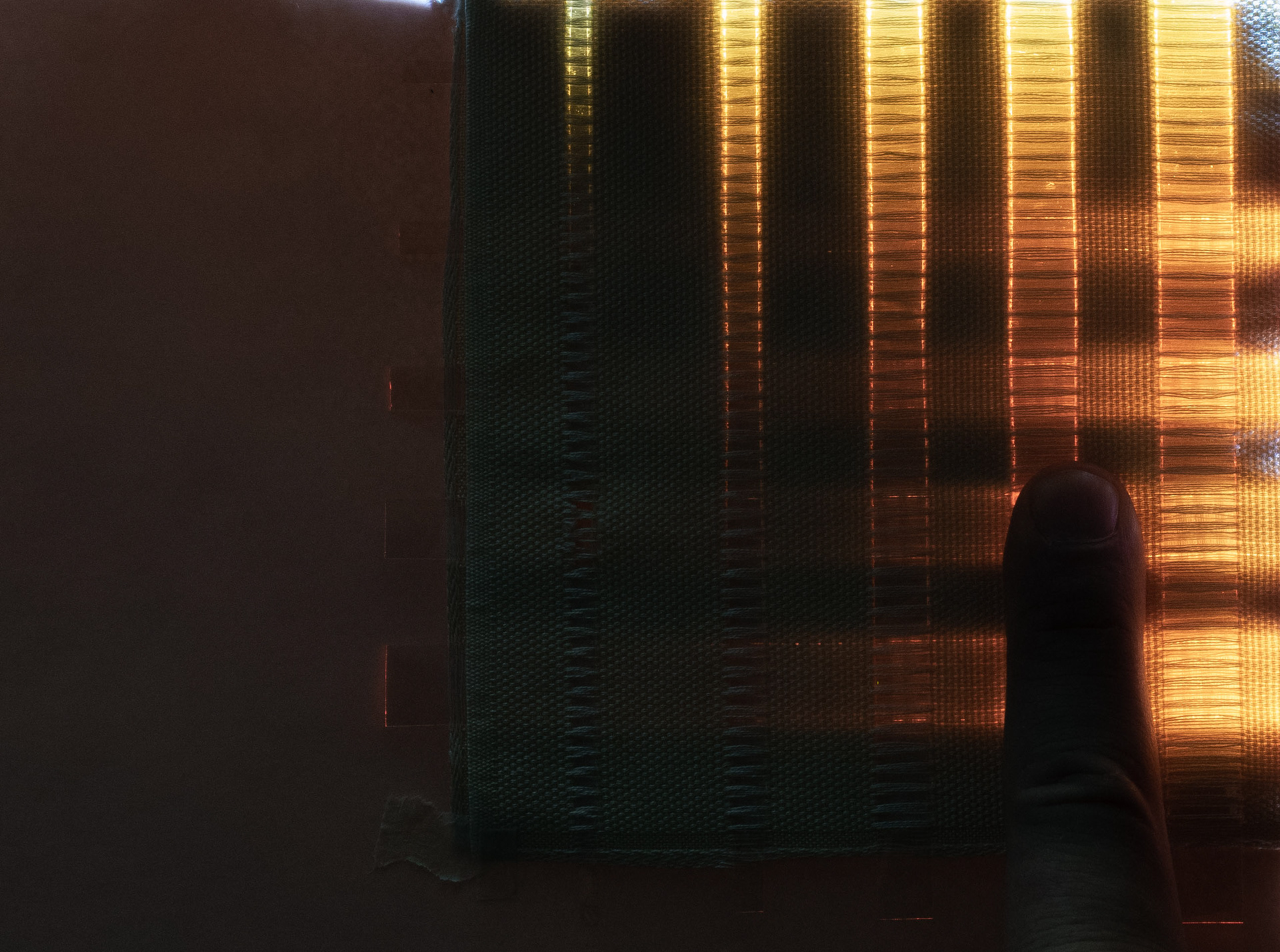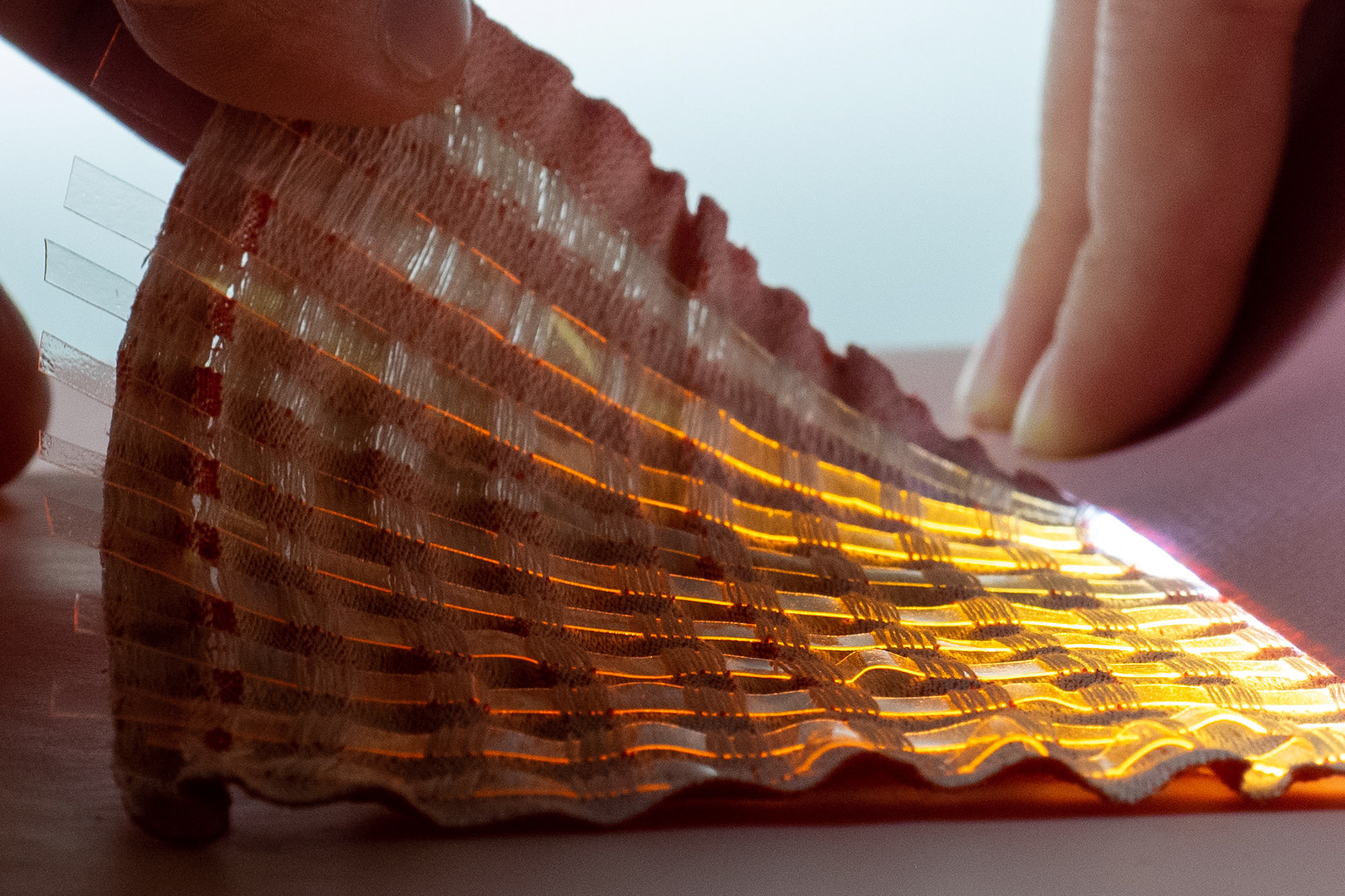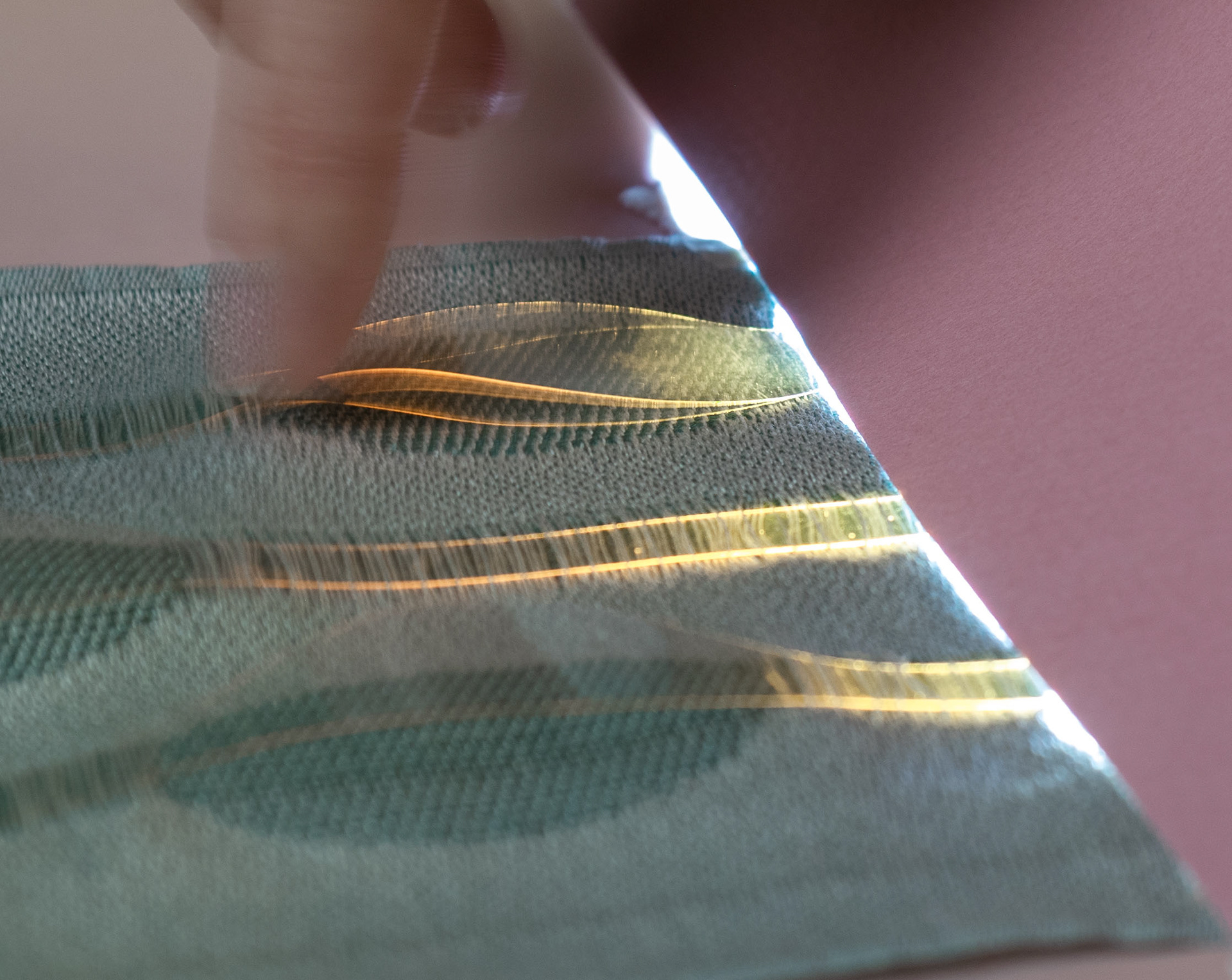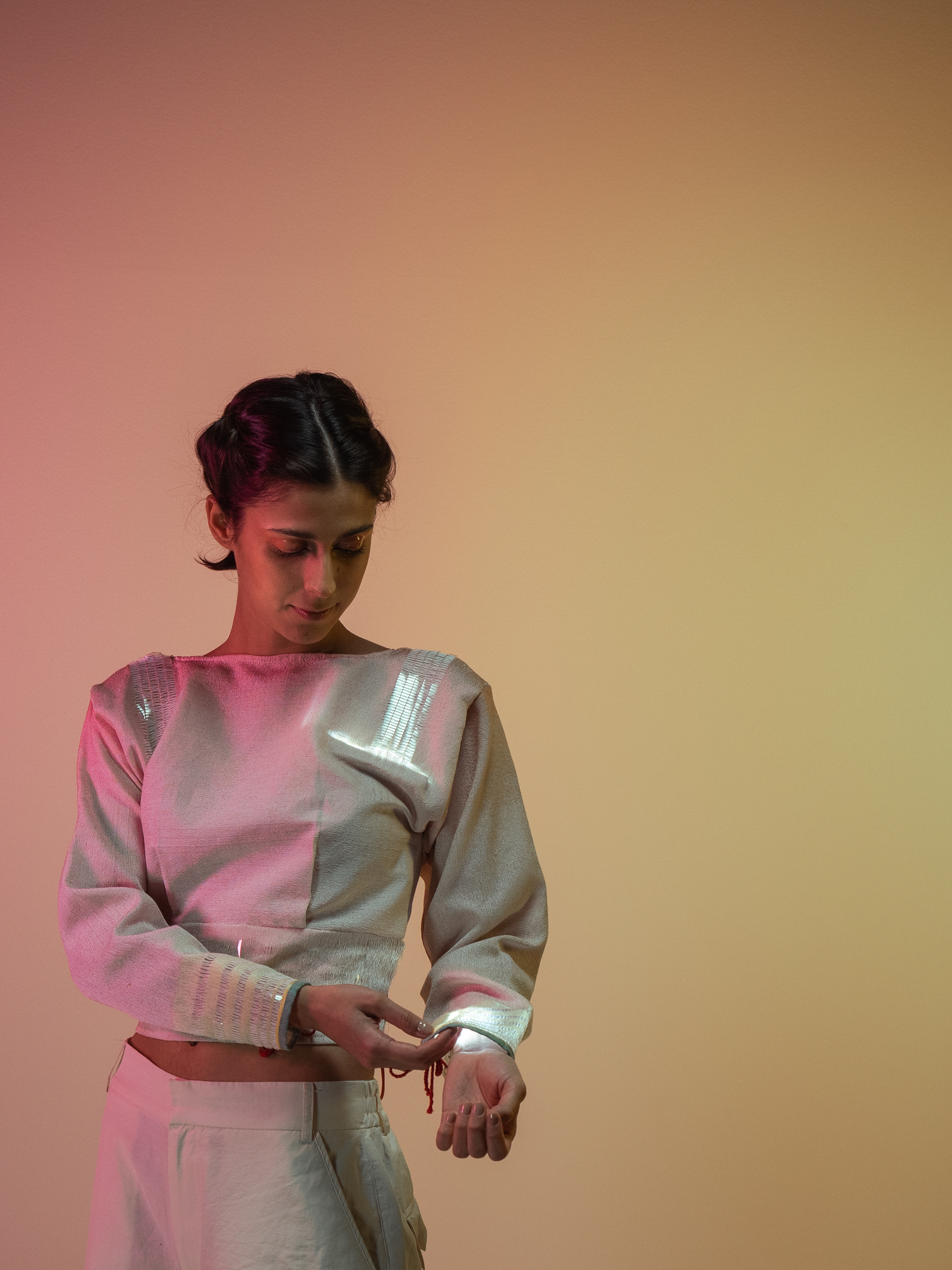2021 / Finland
Light Tissue (MA Thesis): The creation of new textile structures capable of interacting with environmental conditions has contributed to the growing field of smart textiles and wearable technologies. Nevertheless, their ubiquitous integration of functional components such as conductive yarns or microcontrollers will bring new challenges regarding the use of material resources and waste management.
To address this issue, the following project explores the potential of synthesized cellulose as a light-transmitting material for the creation of bio-based smart textiles. Following a practice-based approach and design-driven research methods, exploratory textile samples were created in the context of interdisciplinary work between material science and design disciplines. The resulting textile sensors and light actuators were analyzed to get quantitative data regarding their behavior, and subjective assessment methods for evaluation were used to obtain qualitative data. As a contribution, this thesis presents novel experimental samples of bio-based smart textiles, and an example of how textile design knowledge can have a role in fundamental material research.
The results are part of the FinnCERES funded research project BIOPTICS, in collaboration between Aalto University, Tampere University, and VTT.
Pictures by Vertti Virasjoki
